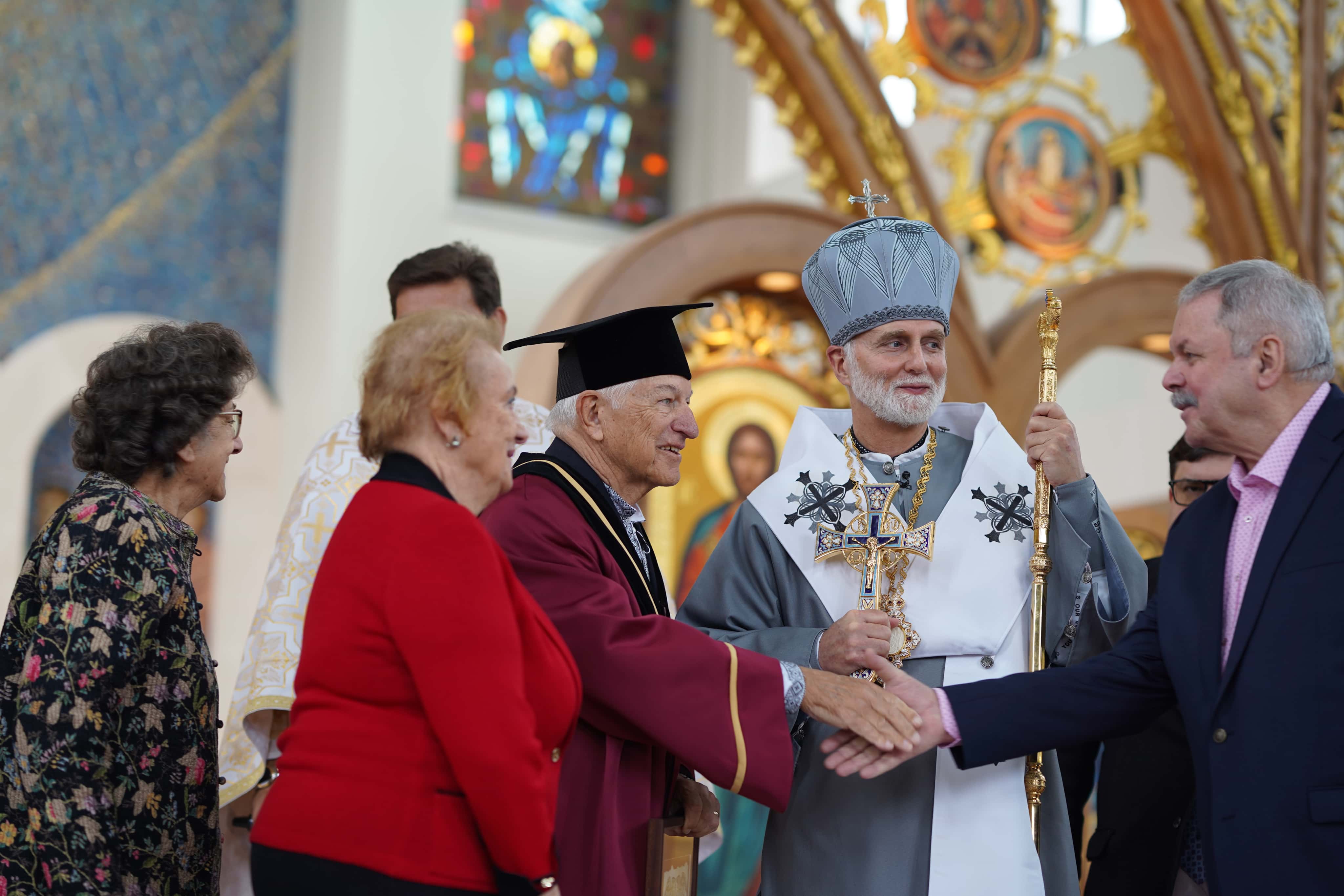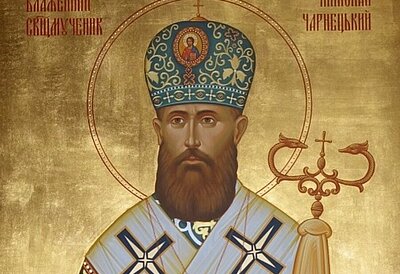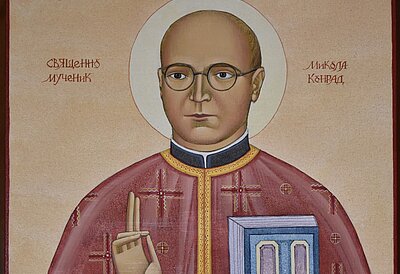- Reporting and benefit events 2024
- Archeparchy
- Our faith
- Offices and ministries
- News
- Events
- Parishes
- Youth Protection
Klymentiy Sheptytskyi (1869-1951)
Klymentiy Sheptytskyi (christened name Maria Kazymyr) was the elder brother of Metropolitan Andrey Sheptytskyi. He was born into an aristocratic family in the village of Prylbychi, Lviv region. His father, Count Jan Kantiy from the ancient Ukrainian Sheptytskyi family, was a well-known political figure, and his mother, Sofia Fredro, was the daughter of the Polish writer Juliusz Słowacki. Klymentiy was the sixth child in the family.
After graduating from the Lviv Gymnasium, Kazymyr Sheptytskyi entered the University of Krakow, where he studied law. In 1892, he received the degree of Doctor of Law. At the same time, he studied at the Forestry Institute. In 1893, he graduated from the University of Krakow.
After graduation, Kazymyr Sheptytskyi worked as a lawyer in Lviv. In 1900, he was elected ambassador to the Galician Diet, and in 1900-1907 he was a member of the Austrian Parliament. In 1907, after the dissolution of the Austrian parliament, Kazymyr decided to end his political activity.
In 1911, Kazymyr Sheptytskyi entered the Benedictine monastery in Beuron, Germany. In 1912, he entered the Ukrainian Catholic Monastery of the Studite Ustav (Studites) in Bosnia, where he took monastic vows and received the name Klymentiy, after Pope Clement I, martyred in Chersonesos, modern Ukraine.
In 1918, he became the abbot of the Univ monastery, and from 1926, the abbot of the Studites of the Holy Dormition Univ Lavra. He played a significant role in the history of Ukrainian Catholic monasticism in the 20th century. In 1936–1937, together with Metropolitan Andrey Sheptytskyi, he drew up a statute for the monks of the Studite Statute, known as the "Typicon", which was approved by Pope Pius XII.
In his monastery cell, there was only an iron bed, a cabinet with books, a table, and a Crucifixion. According to the recollections of his contemporaries, he, who was once a welcome guest of aristocratic salons, an avid hunter, and the owner of an estate, did not seek any advantages for himself: he washed dirty dishes, on an equal footing with his brothers, carried coal on the street, which shocked the people of Lviv.
He was a member of the Theological Scientific Society, lectured at Innsbruck University.
Secretly named Metropolitan Andrey Sheptytskyi Exarch of Russia and Siberia (1939). In 1944, the successor Josyf Slipyi named father Klymentiy an archimandrite of the monks of the Studite statute.
The persecution of Christians in Ukraine was interrupted by the Nazi-Soviet war in 1941, but the situation did not improve much. During this time, Metropolitan Andrey Sheptytskyi, and his brother Klymentiy helped to rescue Jews by hiding them in Studite monasteries and organizing groups to help them escape to the Hungarian-controlled Ukrainian Governorate of Subcarpathia.
From 1941 to 1944, when the region was occupied by Nazi Germany, Jewish boys were hidden at the monastery in Univ, home to monks of the Ukrainian Catholic Church. Univ was particularly important because it was the main Studite monastery, with a large community of monks that could easily hide the boys. Three figures were instrumental in the safekeeping of the boys: Metropolitan Andrey Sheptytskyi, his brother Klymentiy, and Omelyan Kovch, a priest from the nearby town of Peremyshliany.
Two of the boys who were harbored by Sheptytskyi in Lviv were Kurt I. Lewin, whose father was Lviv's last rabbi, and David Kahane, who later became chief rabbi in the Israeli Air Force. Both men wrote about their experiences in later life: Lewin in his book "A Journey Through Illusions" and Kahane in his book "The Lvov Ghetto Diary."
Klymentiy Sheptytskyi was recognized as one of the Righteous among the Nations by the State of Israel in 1995.
In 1945, after the arrest of all the Greek Catholic bishops (none of them agreed to convert to Orthodoxy), he actually headed the church. He called on the priests not to agree to the transfer to the jurisdiction of the Russian Orthodox Church.
He sent a letter to the Vatican describing the persecution of Greek Catholics. This letter was intercepted by the NKVD authorities, which became the reason for his arrest.
After his arrest on June 5, 1947, Klymentiy Sheptytskyi was placed in the Kyiv Internal Prison of the Ministry of Internal Affairs. There he was tortured for two months.
NKVD tried to break his spirit in various ways: beatings, physical and moral abuse, blackmail, intimidation, sympathy, flattering promises. The investigator repeatedly offered him to renounce his faith and come under the jurisdiction of the Moscow Patriarchate, promising to let him go to a monastery.
However, Klymentiy Sheptytskyi remained steadfast in his holy conviction. He refused to renounce his faith and remain faithful to Christian ideals.
In September 1947, Klymentiy Sheptytskyi was sentenced to 25 years in prison. He was sent to Moscow to the internal prison of the MGB of the USSR, spending most of his time in the medical building.
Archimandrite Klymentiy Sheptytskyi died on May 1, 1951, at 9:30 p.m. in the Vladimir headquarters. He was buried under its walls in a pre-dug hole on May 3 at 3 a.m. His grave could not be found. Varvara Ivanivna Larina, a former employee of the Vladimir headquarters, told about the burial procedure: "The deceased was undressed, wrapped in a sheet, put on a stretcher and taken to the city cemetery, which is located next to the prison. The body was thrown into a pit prepared in advance and covered with earth, leaving no marks."
There is an assumption that Klymentiy Sheptytskyi was a secret bishop.






